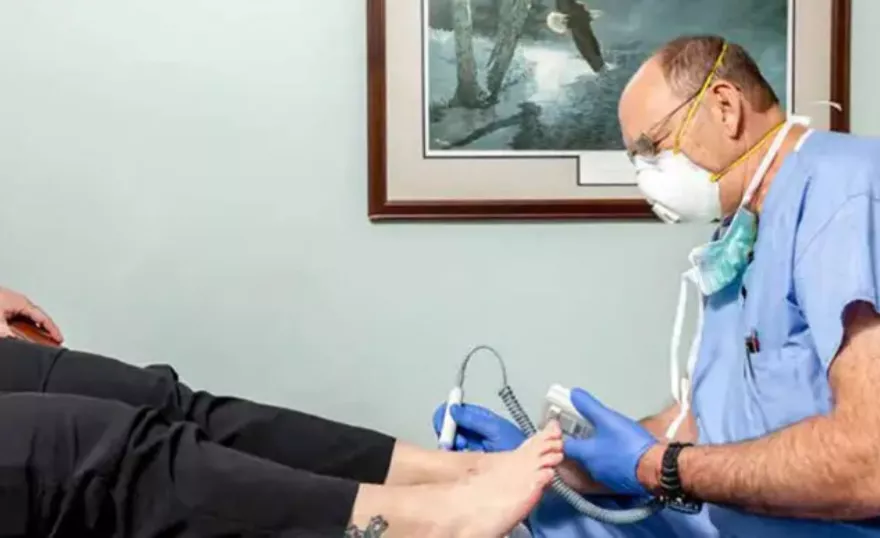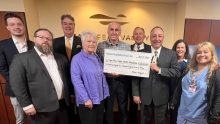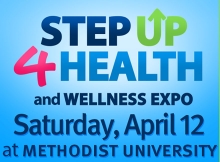General News
Ask any podiatrist, and they will tell you your feet are the foundation for your body and important for your health. Mark Eaton, DPM, is one of those more than 18,000 practicing podiatrists in the United States.
He says it simply enough.
“Your foot and ankle are the basis for touching the ground, and we use them for just about everything we do,” says Dr. Eaton, 51, who is Chief of Podiatry for Cape Fear Valley Health. “It is difficult to do the things you want to do if your feet hurt. If you have foot pain, you won’t be as active.”
On any given day of any week, you can look around the waiting room of Cape Fear Valley Podiatry and see patients from children to seniors anticipating a scheduled appointment.
They have a foot issue – podiatric issues that can range from bunions, corns, heel spurs, hammertoes, toe fungus, ingrown toenails, athlete’s foot, plantar fasciitis, a torn or inflamed Achilles tendon, ankle strains and sprains, bone fractures and diabetic neuropathy.
Make no mistake about the human foot. It is a complex vessel for movement, balance and stability and your every “step” in life.
“I would say the most common foot issues we treat in this community are those related to diabetes,” Dr. Eaton says. “They make up 50 percent of our practice. Dan Laut, DPM, who is with our practice, was the first to prioritize diabetic foot care in the health system. This involves high-level wound management and reconstructive surgery to salvage limbs. Many times, we find novel ways to heal our high-risk patient population. The primary goal is to prevent amputations.”
Other podiatric health issues, he says, include diagnosis and treatment of patients with venous ulcers, those with rheumatoid arthritis and vascular wounds and Charcot foot, a disease that affects bones, joints and soft tissue of the foot.
“It results from a complication of diabetes,” Dr. Eaton says about neuropathy that can lead to Charcot foot. “After neuropathy, you can’t feel things and you walk until you break bones in the foot and ankle, creating severe deformities. We can reconstruct the deformity so you can walk again.”
However, Dr. Eaton says, neuropathy can lead to infection, and a patient with severe diabetic foot ulcers, as well as Charcot foot issues, may face the decision and reality of amputation.
Average life expectancy after amputation, according to the Journal of Foot and Ankle Research published by BMC Medicine, is less than 5 years, and Dr. Eaton says as limited as 3 years.
“We do whatever we can do to avoid amputation,” Dr. Eaton says, “because we know their life expectancy will be dramatically decreased.”
Dr. Eaton knows the human foot like a roadmap, from that nagging bunion on the base of your big toe to that painful ingrown toenail or hammertoe to those aggravating calluses and corns that form on the toes to heel spurs and plantar fasciitis that results from inflammation in tissue in the heel to the toes.
“Most of the people we see get better in two visits,” Dr. Eaton says. “For instance, those with plantar fasciitis, Achilles tendonitis, ingrown toenails or Morton’s neuroma, which is pinched nerves in the foot.”
Cape Fear Valley Podiatry sees an average of 50,000 patients each year, making it the largest podiatric clinic in the state. And the clinic is about to get larger. In July, they will begin a Podiatry Medical Residency program that will be affiliated with Cape Fear Valley Health.
“We will have 12 residents, four coming each year over the next 3 years,” Dr. Eaton says, “and we have brought in Dr. Kristen McGinness to head the program.”
Kristen McGinness, DPM, previously worked at Yale New Haven Health - Bridgeport Hospital in Bridgeport, Connecticut, as assistant resident director.
Mike Nagowski, Cape Fear Valley Health’s Chief Executive Officer, is passionate about the Cape Fear Valley Medical Education Residency Program, so when approached by Dr. Laut and Dr. Eaton about adding a podiatric residency program, he didn’t hesitate.
“It was another tremendous healthcare opportunity for Cape Fear Valley Health to serve all of our communities,” Nagowski says. “And Dr. McGinness is the absolute right physician to lead us.”
Dr. McGinness embraces the opportunity.
“The Cape Fear Valley Podiatry Residency Program has been approved by the Council on Podiatric Medical Education to start July 2021,” Dr. McGinness says, “and I am excited to be a part of it. As the Podiatry Department at Cape Fear Valley continues to expand, we will be able to provide expanded care with up-to-date technology and resources to our patients.”
Epilogue
Spring is upon us, with summer near, and you are anxious to get back to long walks through the neighborhood, pushing those baby strollers, hiking with friends, flipping backhands across the tennis court nets, running along the sandy beaches and dancing the night away.
But a podiatrist’s words resonate.
“As long as we can do the things we want to do every day, we take our feet for granted,” Dr. Eaton says, “but if we have a problem, we understand how the health of our feet can impact our lives.”




